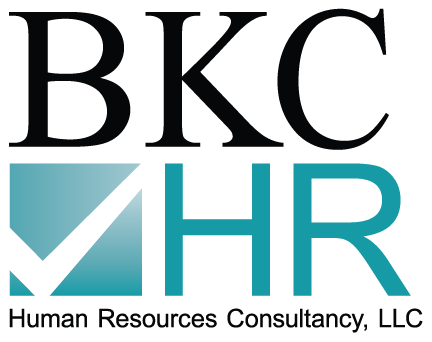 Effective January 1, 2024, U.S. and foreign entities doing business in the U.S., may be required to disclose information regarding their beneficial owners to the U.S. Department of Treasury’s Financial Crimes Enforcement Network (FinCEN). This requirement is being implemented under the beneficial ownership information (BOI) reporting provisions of the Corporate Transparency Act (CTA) passed by Congress in 2021.
Effective January 1, 2024, U.S. and foreign entities doing business in the U.S., may be required to disclose information regarding their beneficial owners to the U.S. Department of Treasury’s Financial Crimes Enforcement Network (FinCEN). This requirement is being implemented under the beneficial ownership information (BOI) reporting provisions of the Corporate Transparency Act (CTA) passed by Congress in 2021.
Who is Impacted?
Companies are required to report BOI information only when they meet the definition of a “reporting company” and do not qualify for an exemption. A domestic reporting company would generally include a corporation, limited liability company (LLC), and companies created by filing documents with a secretary of state, such as a limited liability partnership, business trust, and other limited partnerships. The term “foreign reporting company” generally includes entities formed under the law of a foreign country that are registered to do business in any U.S. state.
A beneficial owner is broadly defined as any individual who, directly or indirectly, either exercises substantial control over a reporting company or owns or controls at least 25% of the ownership interests of a reporting company. Reporting companies are required to file a BOI report electronically through a secure filing system, FinCEN’s BOI E-Filing System, which began accepting reports on January 1, 2024.
Due Dates for Filing
Reporting companies created or registered to do business in the U.S. prior to January 1, 2024, are required to file an initial report by January 1, 2025. Once the initial report is filed, an updated BOI report must be filed within 30 days of a change. The failure to make required BOI filings may result in both civil (monetary) and criminal penalties. Reporting companies created or registered to do business in the U.S. after January 1, 2024, must file an initial report disclosing the identities and information regarding their beneficial owners within 90 days of creation or registration.
Information To Be Reported
A reporting company must disclose the identity of each beneficial owner of the company and each company applicant. For each individual who is a beneficial owner or a company applicant, the reported information must include:
- Full legal name
- Date of birth
- Current residential address
- A unique identifying number and the issuing jurisdiction from a nonexpired U.S. passport, a nonexpired state driver’s license, a non expired identification document issued by a state, local government, or Indian tribe, or an unexpired foreign passport if the individual does not posses any of those other documents, and
- An image of the document described above
A beneficial owner is an individual who directly or indirectly, through any contact, arrangement, understanding, relationship, or otherwise, either:
- Exercises substantial control over the reporting company; or
- Owns or controls at least 25% of the ownership interests of the reporting company. However, beneficial owners do not include minor children, nominees, intermediaries, custodians, or agent; employees; inheritors, or creditors.
A company applicant is the individual who files the document with a secretary of state or any similar office under state or Indian tribe law that 1)creates the domestic reporting company, or 2) registers the foreign reporting company to do business in the United States. Further, the individual who is primarily responsible for directing or controlling that filing by another individual is also a company applicant.
The reporting company must also report the following about itself:
- Full legal name
- Trade name or “doing business as” name
- Complete current address ( the street address of its principle place of business in the United States; if no U.S. principal place of business, then the street address of the primary location in the United States where it conducts business);
- State, tribal, or foreign jurisdiction of formation
- For a foreign company, the state or tribal jurisdiction where it first registers; and
- Taxpayer identification number (TIN), and employer identification number (EIN) (if a foreign reporting company has no TIN, then a tax identification number issued by a foreign jurisdiction and the jurisdiction’s name).
Penalties
Willful failure to report or update beneficial ownership information, or willful providing of false or fraudulent information, may result in a civil penalty of up to $500 per day, and a criminal penalty of up to $10,000 and/or imprisonment of up to two years. A safe harbor from these penalties may apply if the person who filed the report has a reason to believe that the report contains inaccurate information and files a report with corrected information within 90 calendar days after filing the inaccurate report.
The unauthorized disclosure or use of beneficial ownership information obtained may lead to a civil penalty of up to $500 per day, and a criminal penalty of up to $250,000 and/or imprisonment of up to five years. The criminal penalty increases up to $500,000 and/or imprisonment of up to 10 years, if the unauthorized disclosures or use occurs while violating another law of the United States or as part of a pattern of illegal activity involving more than $100,000 in a 12-month period.
Who is Exempt?
There are 23 specific types of entities that are exempt from the new BOI reporting requirement. Most exemptions apply to entities that are already subject to substantial federal reporting requirements, such as some public companies, banks, securities brokers and dealers, insurance companies, registered investment companies and advisors, and pooled investment companies.
An exemption is also available for a “large operating company,” generally defined as a company with more than 20 full-time employees, a physical office within the U.S., and more than USD 5 million in gross receipts or sales from U.S. sources (as shown on a filed federal income tax or information return).
Practical Challenges
Every company doing business in the U.S. will need to determine whether it is subject to BOI reporting or whether an exemption applies. Because many of the exemptions depend on an entity’s legal status under various statutes (e.g., the Securities Exchange Act, the Investment Company Act), coordination and confirmation with counsel may be necessary. Further, companies that are eligible for exemption will need to implement processes to continuously assess eligibility for the exemption.
Companies that are subject to BOI reporting will need to implement processes to identify its beneficial owners and gather the information necessary to file the required BOI report. For some entities, operating agreements, subscription agreements, and similar documents may need to be reviewed to take into account the new BOI disclosure obligations. Further, because the definition of beneficial owners includes not only shareholders but senior officers and important decision-makers within the reporting company, processes to identify changes in leadership or key management will need to be considered to comply with BOI reporting obligations going forward. Because the information to be reported arise from determinations that are primarily legal in nature, companies should begin working with their counsel to proactively assess their filing obligations under the new BOI reporting rules.
Contact us and speak with one our professionals with any questions regarding these changes.
Learn more about our Tax Planning & Compliance services.




